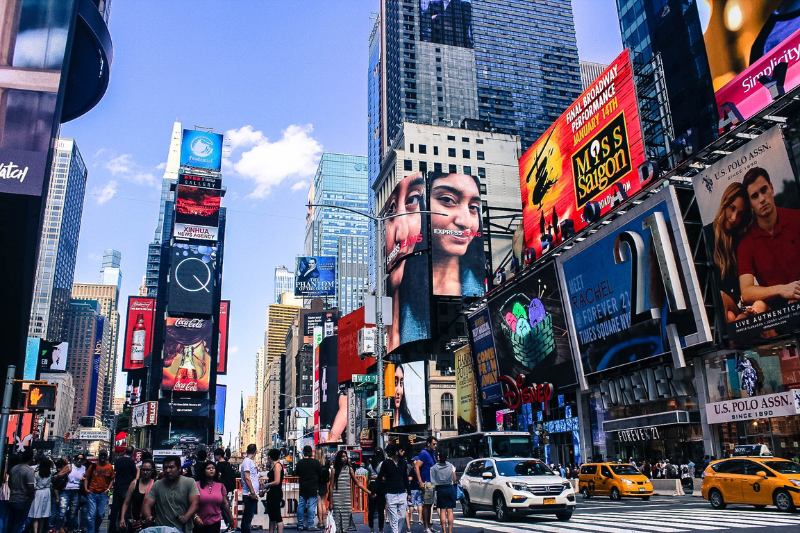Introduction
Language is not just a tool for communication; it’s a gateway to a world of cultural richness and diversity. Traditionally, language learning has been confined to classrooms, textbooks, and structured courses. However, there’s a dimension of language acquisition that these methods often overlook—the profound impact of cultural immersion. When you step into a country where your target language is spoken, you’re not just learning to conjugate verbs or memorize vocabulary. You’re experiencing the language in its most authentic form, shaped and colored by the culture that gave birth to it.
This blog post delves into the unique and transformative experience of learning a language through cultural immersion. Unlike the structured environment of a classroom, immersing yourself in a new culture exposes you to the language as it’s spoken in daily life. It’s about picking up colloquialisms at a local market, understanding regional accents in a bustling café, and uncovering the nuances of communication that only come to light in the context of real interactions.
Cultural immersion in language learning is not just about enhancing linguistic skills but also about personal discovery. As you navigate new streets, engage with locals, and embrace different ways of life, you’re not just becoming fluent in a language—you’re also expanding your worldview and building a deep, nuanced understanding of the people and traditions behind the words you learn. This article explores the role of culture in language acquisition, practical advice for immersing oneself in a new culture, and strategies for maximising language learning while travelling.
The Role of Culture in Language Acquisition
Culture and language are inextricably linked; to understand one, you often need to appreciate the other. The role of culture in language acquisition is not just about learning to speak a language but about understanding the context in which words are used. It’s about grasping the subtle nuances and meanings that are deeply rooted in cultural practices, beliefs, and history.
- Cultural Nuances and Language: Every language carries its set of idioms, humor, and references that are deeply intertwined with its culture. When you immerse yourself in a new culture, you start to understand these nuances, making your use of the language more natural and authentic.
- Social Interactions and Language Use: Cultural immersion lets you observe and participate in social interactions where language is used in its natural setting. You learn how to interpret body language, tone, and context – aspects of communication that textbooks seldom cover.
- Cultural Context and Language Learning: Understanding the cultural context of a language helps in grasping concepts that are unique to that culture. This includes everything from the formality of language in different settings to the way humor, respect, and relationships are navigated through words.
Through cultural immersion, language learners gain an appreciation for how language is a living, breathing entity that reflects the life and soul of a community. This understanding not only aids in learning a language more effectively but also fosters a deeper respect for the culture that surrounds it.
Travel Experiences and Language Skills
Traveling to a country where your target language is spoken can dramatically enhance your language skills. This section discusses how real-world usage of a language, facilitated by travel, can solidify your fluency and understanding.
- Everyday Conversations: Engaging in daily conversations with locals is perhaps the most impactful way to practice language skills. Whether it’s ordering food, asking for directions, or making small talk, these everyday interactions are invaluable for practicing and improving your language proficiency.
- Learning through Listening: Being surrounded by the language allows you to constantly listen to native speakers. This exposure improves your listening skills, helping you to understand various accents and dialects.
- Mistakes as Learning Opportunities: While traveling, you’ll inevitably make language mistakes. These instances are incredibly valuable for learning. Locals often appreciate the effort to speak their language and are usually eager to help you learn from these mistakes.
- Cultural Activities and Language Use: Participating in local activities, festivals, and traditions can be a fun and effective way to learn new vocabulary and phrases related to specific cultural aspects. It also provides context to the language that you can’t get from a book or app. There is a deep connection between culture and language.
- Reflection and Practice: Travel provides numerous opportunities for reflection and practice. Keeping a travel journal in your target language or blogging about your experiences can reinforce what you’ve learned and help you process your experiences linguistically.
In this part of your journey, language learning transcends the boundaries of formal education. It becomes a lived experience, filled with real interactions, emotions, and connections. This is where language skills are truly honed and where learners often make the leap from proficiency to fluency.
Maximizing Your Language Learning While Traveling
Traveling provides a unique opportunity to immerse yourself in a new language environment. To make the most of this experience, it’s important to approach language learning with intentionality and openness. Here are some strategies to help you maximize your language learning while traveling:
- Engage in Immersive Activities: Look for opportunities that require you to use the language actively. This could include cooking classes, local tours, or sports activities conducted in the local language. Such experiences not only enhance your vocabulary but also help you understand the cultural context of the language.
- Volunteer Work: Participating in volunteer work can be a fulfilling way to practice your language skills. It allows you to interact with locals in a meaningful way while contributing positively to the community.
- Homestays and Language Exchanges: Living with a local family or engaging in language exchange meetups can dramatically improve your language proficiency. These experiences offer a deep dive into everyday language use and provide a supportive environment for practicing and learning.
- Navigating Challenges: Be prepared for moments of frustration and misunderstanding. Approach these situations with patience and see them as part of the learning process.
- Document Your Journey: Keeping a journal or blog in the language you’re learning is an excellent way to reinforce new vocabulary and expressions you encounter daily. It also serves as a wonderful record of your language progress.

By embracing these immersive experiences, you not only enhance your language skills but also gain an authentic insight into the lives and cultures of the people who speak it.
Long-Term Benefits of Cultural Immersion
The benefits of cultural immersion extend far beyond the duration of your travels. They can have lasting impacts on both your personal and professional life:
- Enhanced Language Proficiency: The intensive practice during your travels often leads to significant improvements in fluency and comprehension, benefits that can last a lifetime.
- Cultural Sensitivity and Adaptability: Exposure to different cultures enhances your ability to understand and appreciate diversity. This cultural sensitivity is a highly valued skill in our increasingly globalized world.
- Professional Opportunities: Fluency in a second language, coupled with cultural understanding, can open doors to international career opportunities and make you a valuable asset in the workplace.
- Personal Growth: Traveling and learning a language through cultural immersion often leads to greater self-confidence, independence, and a broader perspective on the world.
- Lifelong Learning and Connections: The friendships and connections made during your travels can lead to a lifelong interest in language and cultural studies, as well as provide a global network of contacts.
It can be seen that cultural immersion through travel is more than just a method of language learning; it’s an enriching life experience that offers profound and lasting benefits. It not only enhances your language skills but also broadens your horizons, opening up a world of personal and professional opportunities.
Conclusion
As we’ve explored throughout this article, cultural immersion is not just a supplement to language learning; it’s a comprehensive, enriching approach that interweaves linguistic skills with cultural understanding. Through the lens of travel, language learning transcends the traditional boundaries of classrooms and textbooks, transforming into a vibrant, living experience that engages every sense.
Whether it’s through casual conversations at a local café, participating in traditional festivities, or navigating the challenges of a new environment, each moment of your journey contributes to a deeper understanding and appreciation of both the language and the culture. The beauty of learning a language through travel lies in its ability to open doors to new worlds, perspectives, and connections. It’s an adventure that extends beyond mere fluency, fostering a sense of global citizenship and cultural empathy.
As we conclude, remember that the journey of language learning is as much about the people you meet and the experiences you embrace as it is about mastering grammar and vocabulary. It’s about the laughter shared in a new language, the friendships forged across cultures, and the myriad of small, profound moments that enrich your understanding of the world.
So, we encourage you to step out of your comfort zone, embrace the unfamiliar, and let the world be your classroom. The roads you travel while learning a new language are paved with challenges and triumphs, but the journey is as rewarding as the destination. Embrace the journey of cultural immersion, and watch as your language skills flourish in ways you never imagined.





